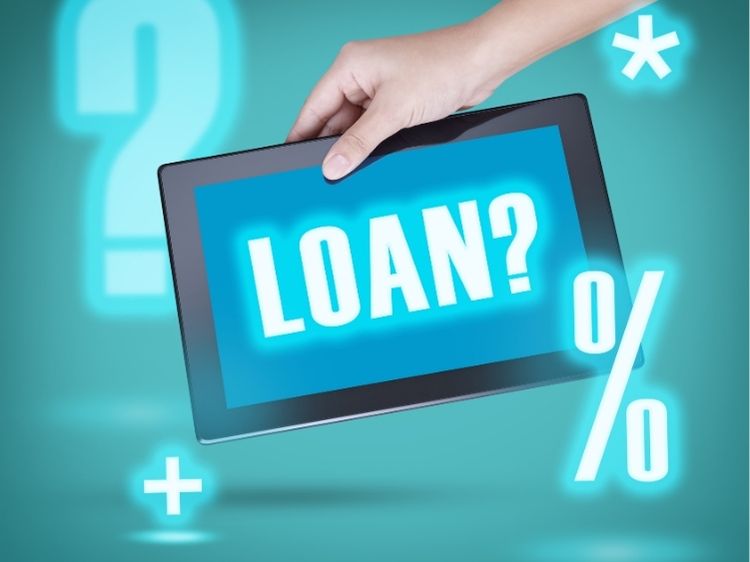Personal loans are one of the most versatile financial tools available to individuals today. Whether you’re looking to consolidate debt, cover unexpected expenses, or finance a large purchase, a personal loan could be the ideal solution. In this comprehensive guide, we’ll explore everything you need to know about personal loans, including how they work, their benefits, and things to consider before applying.
What Is a Personal Loan?
A personal loan is a type of installment loan that allows borrowers to receive a lump sum of money upfront, which they repay over a specified period. Personal loans are usually unsecured, meaning they don’t require collateral, like your house or car. Instead, lenders assess your creditworthiness, income, and financial history to determine your eligibility.
The interest rates on personal loans can vary depending on factors like your credit score, the loan term, and the lender’s policies. Typically, borrowers with good to excellent credit scores are more likely to receive lower interest rates, while those with lower credit scores may face higher rates.
Types of Personal Loans
There are various types of personal loans available, and each serves a unique purpose. Understanding these differences will help you select the right one for your needs.
- Debt Consolidation Loans: These loans are specifically designed to combine multiple debts into a single loan. This way, you only have one monthly payment to manage, often at a lower interest rate.
- Emergency Loans: Life is unpredictable, and sometimes unexpected expenses arise. Emergency personal loans can help cover medical bills, home repairs, or other urgent financial needs.
- Home Improvement Loans: If you’re planning to renovate your home, a home improvement loan allows you to borrow funds specifically for that purpose.
- Personal Line of Credit: A personal line of credit works like a credit card. You have a set credit limit, and you can borrow as much or as little as you need, paying interest only on the amount borrowed.
- Bad Credit Loans: For individuals with less-than-ideal credit, bad credit loans offer a way to access funds, albeit often with higher interest rates and more stringent terms.
Benefits of Personal Loans
Now that you’ve got the lowdown on what personal loans are, let’s talk about the benefits they offer. Here are some reasons why people turn to personal loans as a financial solution:
- Fixed Payments: One of the main advantages of personal loans is that they come with fixed monthly payments. You’ll know exactly how much you owe each month, which can make budgeting easier.
- Lower Interest Rates: Compared to credit cards, personal loans often come with lower interest rates, especially if you have good credit. This can save you a lot of money in the long run.
- Flexible Loan Terms: Personal loans come with various repayment terms, typically ranging from 12 to 60 months. This flexibility allows borrowers to choose a term that fits their financial situation.
- No Collateral Needed: Most personal loans are unsecured, meaning you don’t have to put up your home or vehicle as collateral. This lowers the risk on your end, though it may result in higher interest rates if your credit isn’t great.
- Quick Disbursement: Many lenders offer fast approval and disbursement of funds, making personal loans an excellent option for those in need of quick cash.
Factors to Consider Before Taking Out a Personal Loan
While personal loans offer many benefits, it’s important to consider several factors before jumping in headfirst. Ask yourself the following questions:
- Can I afford the monthly payments? Make sure you’ve reviewed your budget and know you can comfortably make the loan payments each month.
- What is the interest rate? Compare the interest rates offered by different lenders to ensure you’re getting the best deal.
- Is the loan amount necessary? Don’t borrow more than you need. Only take out what’s essential to avoid accumulating unnecessary debt.
- Are there any fees? Some personal loans come with origination fees or prepayment penalties. Read the fine print carefully before signing any loan agreement.
Steps to Apply for a Personal Loan
Ready to apply for a personal loan? Follow these steps to make the process as smooth as possible:
- Check Your Credit Score: Lenders heavily weigh your credit score when deciding your eligibility. Know where you stand by checking your credit report.
- Compare Lenders: Don’t settle for the first lender you come across. Shop around and compare interest rates, fees, and loan terms from multiple lenders.
- Gather Necessary Documents: Be prepared to provide proof of income, employment history, and identification. Lenders may also ask for details about your existing debt.
- Submit Your Application: Once you’ve chosen a lender, submit your loan application either online or in person. Some lenders offer same-day approval, while others may take a few days to process.
- Review Loan Terms: Before accepting any loan offer, carefully review the terms, including the interest rate, monthly payment, and total cost of the loan.
FAQs About Personal Loans
- Can I use a personal loan for anything?
Yes, personal loans are flexible and can be used for various purposes, such as debt consolidation, medical expenses, home improvement, and even vacations. - What credit score do I need to qualify for a personal loan?
While requirements vary by lender, most personal loans require a credit score of at least 600. The higher your score, the better the terms you’ll likely receive. - Can I get a personal loan with bad credit?
Yes, but you may face higher interest rates and less favorable terms. Some lenders specialize in bad credit loans, so shop around for the best option. - How long does it take to get approved for a personal loan?
Some lenders offer instant approval, while others may take a few business days to process your application. The disbursement of funds usually takes one to seven days. - Are there any fees associated with personal loans?
Some personal loans come with fees such as origination fees (typically 1-8% of the loan amount) or prepayment penalties. Make sure you understand all the costs before signing.
Conclusion
Personal loans can be a lifesaver in various financial situations, whether you need to consolidate debt, cover emergency expenses, or fund a major purchase. However, it’s crucial to understand the terms, fees, and interest rates involved to ensure the loan is a smart financial decision. By comparing lenders, assessing your budget, and borrowing responsibly, you can make personal loans work for you.



